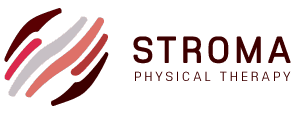Orofacial physical therapy is a specialized area of physical therapy that focuses on the assessment and treatment of disorders affecting the muscles and functions of the face and mouth. The primary goal of orofacial physical therapy is to address issues related to orofacial muscles, which include the muscles involved in speech, chewing, swallowing, and facial expression.
Common conditions treated by orofacial physical therapists include:
- Temporomandibular Joint (TMJ) Disorders: Orofacial therapists may work with individuals experiencing pain, dysfunction, or clicking in the jaw joint, which can result from conditions such as temporomandibular joint disorder (TMD).
- Speech and Articulation Disorders: Orofacial therapy can be beneficial for individuals with speech and articulation difficulties caused by muscle weakness or coordination issues in the face and oral cavity.
- Orthodontic and Dentofacial Issues: Orofacial physical therapists may assist in addressing orofacial muscle imbalances that can contribute to orthodontic and dentofacial problems.
- Tongue Thrust or Incorrect Swallowing Patterns: Individuals with tongue thrust or abnormal swallowing patterns may benefit from orofacial therapy to retrain and improve muscle coordination for proper swallowing.
- Facial Paralysis: Orofacial physical therapy can be part of the rehabilitation process for individuals with facial paralysis, such as Bell’s palsy, helping to improve facial muscle strength and coordination.
- Breathing Disorders: Disorders related to breathing patterns, such as mouth breathing, may be addressed through orofacial therapy to promote nasal breathing and improve overall respiratory function.
- Muscle Tension and Pain: Orofacial physical therapists may work with individuals experiencing muscle tension, pain, or headaches related to issues in the orofacial region.
Orofacial physical therapy typically involves a thorough assessment of the individual’s orofacial muscles, posture, and functional movements. Treatment may include a combination of the following:
- Muscle Strengthening and Coordination Exercises: Targeted exercises to improve muscle strength, coordination, and function in the face and oral cavity.
- Myofunctional Exercises: Specific exercises designed to retrain or improve oral and facial muscle function, including tongue posture and swallowing patterns.
- Joint Mobilizations: Techniques to address joint mobility issues, particularly in the temporomandibular joint.
- Postural Education: Guidance on maintaining proper posture of the head, neck, and jaw to alleviate strain on orofacial muscles.
- Behavioral Modification: Education and strategies to address habits that may contribute to orofacial issues, such as tongue thrust or improper swallowing.
Orofacial physical therapists often work closely with dentists, orthodontists, speech-language pathologists, and other healthcare professionals to provide comprehensive care. The goal is to optimize orofacial muscle function, improve functional activities, and enhance overall well-being for individuals with orofacial concerns.
